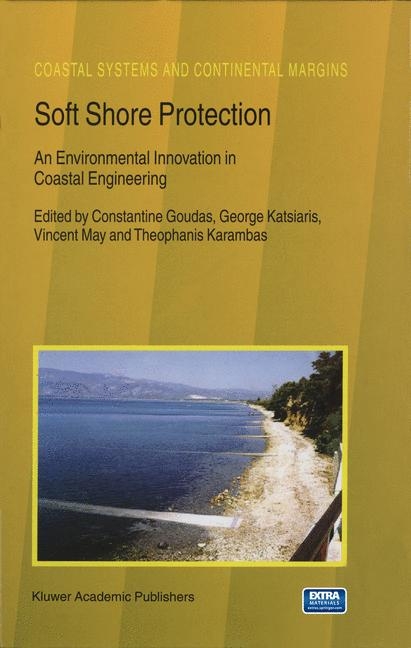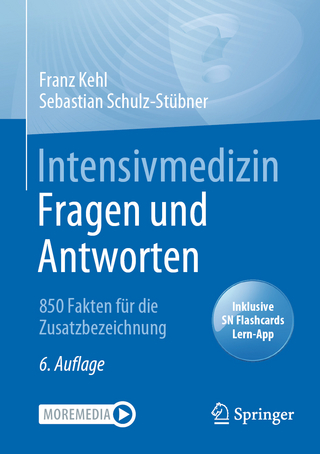
Cerebral Vasospasm
Springer Wien (Verlag)
978-3-7091-7270-4 (ISBN)
- Titel wird leider nicht erscheinen
- Artikel merken
This book contains selected contributions to the 7th International Conference on Cerebral Vasospasm held in Interlaken, Switzerland, in June 2000. Part I of the book concentrates on basic science and experimental vasospasm. The molecular biology of vasospasm, the role of endothelin and nitric oxide as well as the potential of gene therapy are presented.
Part II concentrates on the diagnosis and therapy of clinical vasospasm. New diagnostic tools are presented, including diffusion and perfusion-weighted MRI, MR spectroscopy and microdialysis with metabolic monitoring. Leaders in the field discuss the current indications and results of endovascular treatment of cerebral vasospasm. The latter chapters are devoted to the treatment of clinical vasospasm with new drugs and to the prevention and treatment of ischemic deficits with neuroprotective drugs and hemodynamic therapy. The book provides the state-of-the-art in the major subjects of the molecular biology of vasoconstriction and experimental vasospasm as well as the diagnosis and treatment of clinical vasospasm.
Is Cerebral Vasospasm still a Clinical Problem?.- 1: Basic Science and Experimental Vasospasm.- Molecular Biology of Vasospasm.- Pathophysiology and Molecular Genetics of Vasospasm.- Identification of Genes Differentially Expressed in Canine Vasospastic Cerebral Arteries after Subarachnoid Hemorrhage.- Complimentary Deoxyribonucleic Acid Array Analysis of Cerebral Arteries after Experimental Subarachnoid Hemorrhage.- Which Protein Kinase C Isoforms are Involved in the Development of Vasospasm After Subarachnoid Haemorrhage?.- Role of Mitogen-Activated Protein Kinase in the Contractions of Rabbit Basilar Artery Induced by Hemolysate, Oxyhemoglobin, and Bloody CSF.- Apoptosis in Basilar Endothelial Cells in a Canine Double Hemorrhage Model.- Delayed Clot Removal and Experimental Vasospasm.- Influence of Brain Natriuretic Peptide on Phenotypic Change of Cerebral Vasculature.- Brain Natriuretic Peptide and Cerebral Vasospasm in Subarachnoid Hemorrhage.- Phosphatidylcholine Peroxidized by Hemoglobin Increases Intracellular Calcium in Dog Basilar Artery Smooth Muscle Cells.- Importance of Rho-Kinase-Mediated Phosphorylation of Myosin Light Chain in Vasospasm.- Role of MAPK in Chronic Cerebral Vasospasm.- Endothelin and Nitric Oxide.- Endothelin: The “Prime Suspect” in Cerebral Vasospasm.- Nitric Oxide and Vasospasm.- Effect of Endothelin-Converting Enzyme Inhibitors on Big Endothelin-1 Induced Contraction of Rabbit Basilar Artery.- The Role of Endothelin I As Predictor of the Symptomatic Vasospasm in Acute Stage of Subarachnoid Hemorrhage.- Gene Therapy.- Gene Therapy for Vasospasm.- The Functional Significance of Heme Oxygenase-1 Gene Induction in a Rat Vasospasm Model.- Adenovirus-Mediated Heme Oxygenase-1 Gene Transfection Prevents Hemoglobin-Induced Contraction of Rat Basilar Artery.- Experimental Vasospasm.- In Vivo Animal Models of Cerebral Vasospasm: A Review.- Functional Characteristics of the Spasm Model by the Polystyrene Latex Bead.- The Effect of Sympathetic Nervous System Exclusion on Cerebral Vasospasm Following Subarachnoid Hemorrhage in Rabbits.- Comparison of Cerebral Vasospasm Between Young and Old Animals: Preliminary Report.- Molecular Weight Interactions in Experimental Vasospasm.- 2: Diagnosis and Therapy of Clinical Vasospasm.- Diagnosis of Vasospasm.- Diffusion-Weighted and Perfusion-Weighted MR of Cerebral Vasospasm.- Assessment of Cerebral Microcirculatory Changes During Cerebral Vasospasm by Analyzing Cerebral Circulation Time on DSA Images.- Bedside Monitoring of Cerebral Blood Flow in Patients with Subarachnoid Hemorrhage.- Changes in Neuronal Metabolites in Brain Following Subarachnoid Haemorrhage Evaluated by Proton MR Spectroscopy.- Microdialysis and Metabolic Monitoring.- On-Line Microdialysis Following Aneurysmal Subarachnoid Hemorrhage.- Time Course of Various Interstitial Metabolites Following Subarachnoid Hemorrhage Studied by On-Line Microdialysis.- Monitoring Subtle Neurometabolic Changes in Subarachnoid Hemorrhage Patients Using Microdialysis: A Study on 16 Cases.- Microdialysis Nitric Oxide Levels and Brain Tissue Oxygen Tension in Patients with Subarachnoid Hemorrhage.- Prevention of Vasospasm by Clot Lysis.- Cisternal Washing Therapy for the Prevention of Cerebral Vasospasm Following Aneurysmal Subarachnoid Hemorrhage.- Sequential Changes of Oxyhaemoglobin in Drained Fluid of Cisternal Irrigation Therapy — Reference to the Effect of Ascorbic Acid.- Cisternal Irrigation Therapy with Urokinase and Ascorbic Acid for Prevention of Vasospasm.- Endovascular Treatment of Cerebral Vasospasm.- Endovascular Treatment of Cerebral Vasospasm Following S.A.H..- Current Indications and Results of Cerebral Angioplasty.- Balloon Prophylaxis of Aneurysmal Vasospasm.- Effect of Intra-Arterial Infusion of Papaverine Hydrochloride on Brain Tissue Oxygen Pressure in the Management of Severe Vasospasm Following Aneurysmal Subarachnoid Hemorrhage.- Long Term Follow-Up of Angioplasty for Cerebral Vasospasm.- Treatment of Clinical Vasospasm and Neuroprotection.- Effect of Fasudil HCI, a Protein Kinase Inhibitor, on Cerebral Vasospasm.- Combined Administration of Fasudil Hydrochloride and Nitroglycerin for Treatment of Cerebral Vasospasm.- Clinical Effect of Fasudil Hydrochloride for Cerebral Vasospasm Following Subarachnoid Hemorrhage.- A Novel Drug Delivery System As Prophylaxis for Cerebral Vasospasm.- Development of Nicardipine Prolonged-Release Implants for Preventing Vasospasm.- Inhibition of Overexpression of Endothelin-1 by an RNA Synthesis Inhibitor, Doxorubicin, in the Rat Vasospasm Model.- Effects of High Cervical Spinal Cord Stimulation (CSCS) on Regional Cerebral Blood Flow after Induced Subarachnoid Haemorrhage in Rats.- Vasodilating Effect of Spinal Cord Stimulation for Cerebral Vasospasm.- Hemodynamic Therapy and Neuroprotection.- Metaanalysis of Trials of Tirilazad Mesylate in Aneurysmal SAH.- Triple-H Therapy after Aneurysmal Subarachnoid Hemorrhage. A Review.- Triple-H Therapy does not Increase Cerebral Blood Flow after Induced Subarachnoid Hemorrhage in Pigs. Results of a Pilot999mTc HMPAO-Single Photon Emission Computed Tomography Study.- Cerebral Vasospasm after Subarachnoid Hemorrhage: Hypertensive Hypervolemic Hemodilution (3-H) Therapy According to New Systemic Hemodynamic Parameters.- Antiischemic Therapy of Severe Prolonged Vasospasm after Aneurysmal SAH: Effects on Quality of Life.- Hypothermia Reduces Acute Vasospasm Following SAH in Rats.- Neuroprotective Treatment Paradigms in Neurovascular Surgery — Efficacy in a Rat Model of Focal Cerebral Ischemia.- Author Index.- Index of Keywords.
| Erscheinungsdatum | 19.12.2018 |
|---|---|
| Reihe/Serie | Acta Neurochirurgica Supplementum ; 77 |
| Zusatzinfo | XI, 272 p. 68 illus., 1 illus. in color. |
| Verlagsort | Vienna |
| Sprache | englisch |
| Maße | 216 x 280 mm |
| Themenwelt | Medizinische Fachgebiete ► Chirurgie ► Neurochirurgie |
| Schlagworte | cerebral vasospasm • clinical vasospasm • Diagnosis • Magnetic Resonance Imaging (MRI) • Neuroprotection • Vasospasm |
| ISBN-10 | 3-7091-7270-5 / 3709172705 |
| ISBN-13 | 978-3-7091-7270-4 / 9783709172704 |
| Zustand | Neuware |
| Informationen gemäß Produktsicherheitsverordnung (GPSR) | |
| Haben Sie eine Frage zum Produkt? |
aus dem Bereich


